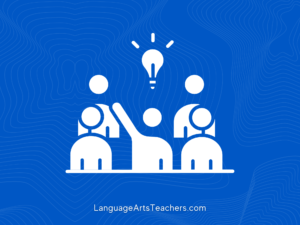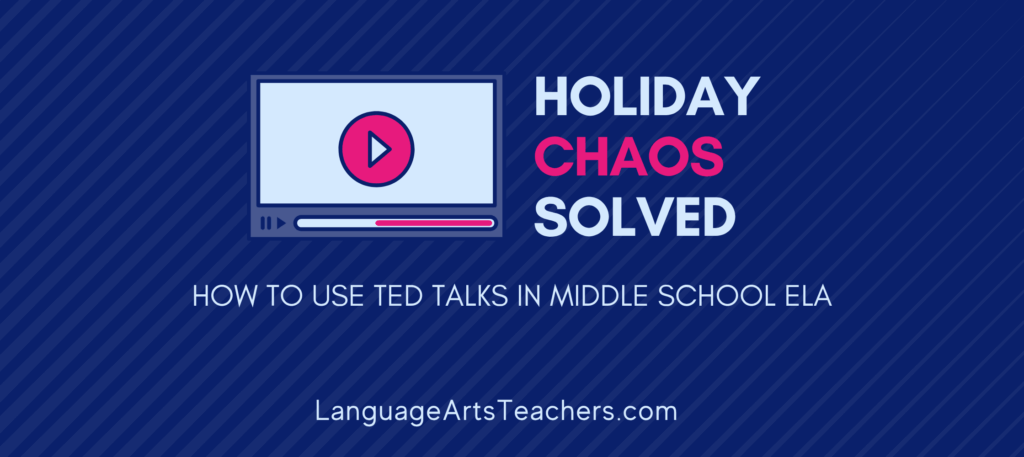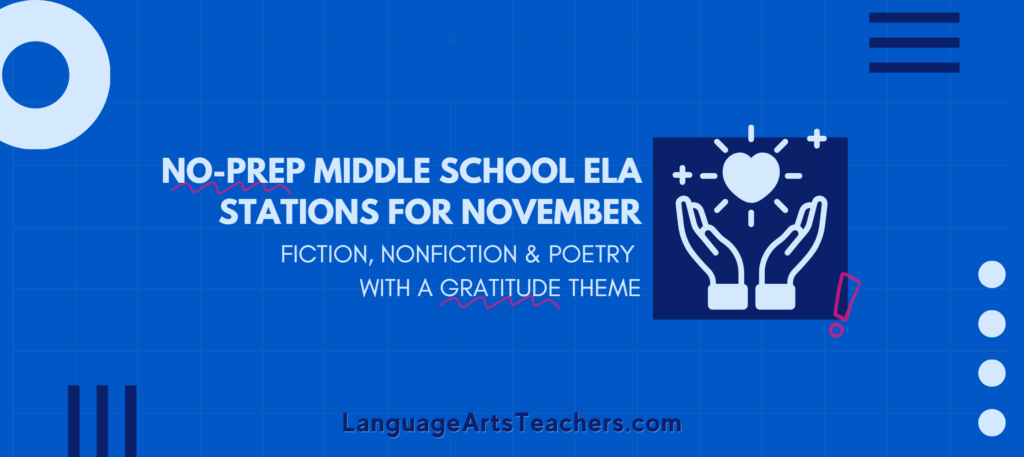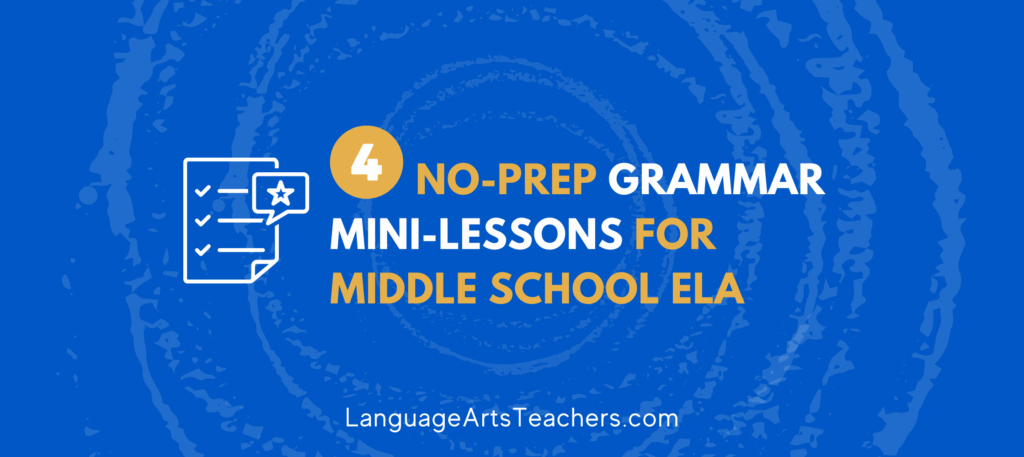Middle School ELA Teachers have a LOT to teach with only a very limited amount of time, like all the reading genres and the writing that comes with it.
I’m talking about fiction, nonfiction, drama, and poetry.
Within each of those genres are seemingly limitless sub-genres that we have to teach as well. For instance, under the nonfiction category comes literary nonfiction, expository, argument, and more. In addition, we have both the domain-specific, academic vocabulary for each genre, not to mention all the vocabulary that students encounter as part of the everyday reading process.
Oh. And don’t forget novels—both independent student choice novels and whole-class novels for building that shared experience and common foundation.
Somewhere, somehow, we’re also teaching grammar, mechanics, and spelling, plus speaking and listening skills.
On top of all that, if you’re like me, you find that students need constant typing or “keyboarding” skills because texting and swiping on phones doesn’t translate to typing out a formal essay.
What I can recommend that really saves my sanity—-and this is why I’m sharing here with you, too— is to realize that not ALL the skills have to be taught each and every day.

For instance, maybe Mondays and Fridays you have 20 minutes for spelling / vocabulary. And maybe Tuesdays and Thursdays you focus that same 20 minutes on grammar and writing. It doesn’t mean you’re only writing for 20 minutes twice a week, or that you’re only “doing grammar” twice a week, either. You can embed grammar and writing anytime, anywhere, as you read or write with your students on a daily basis since your students will probably do some kind of writing, whether formal or informal, every day. I’m just saying that you can earmark certain days and times for specific mini-lessons or for practicing certain really targeted skills.
What I really do go back to again and again is reminding myself of the fact that I just can’t teach every single skill every single day. And because of that, I like to look at my lesson plans not in terms of 5 days, but in terms of 10 days (two weeks). I ask myself, am I least getting to each concept I have to teach during that 10 day window? Yes? Ok, I’m good! That really helps when I feel overwhelmed with the reading, writing, vocabulary, grammar, spelling, novels, speaking and listening skills, etc. When I know I need more time (which is always, of course), I literally GIVE myself more time by designing lessons that take ten class days instead of five class days. So often, we get stuck in that “Monday through Friday” work week where we box ourselves in with the false belief that we must begin a task on Monday and finish it by Friday. Not true!
Here’s another idea for how to build in time for students to (pretty) consistently practice skills like spelling, vocabulary, grammar, and more without the teacher needing to formally present an official lesson:
I have a “What Do I Do When I’m Done?” choice board poster that I made for my classroom. It looks like a grid with 9 boxes. In each box is an option for students that they can work on if or when they finish something early (i.e. they just finished their independent choice novel and don’t want to start a new one yet, or they finished an assignment early that day, or they need to take a brain break from an essay they’re writing, etc.).
This choice board is where I put options for skills or concepts I want them to practice / work on, but that I don’t actually grade. For instance, www.typingclub.com is a good one because it helps them improve their keyboarding and typing skills. Or www.flocabulary.com (and others like it) where they can practice vocabulary terms. There’s one called www.storyboardthat.com where they can create digital comic strips based on something we read in class recently. Or another good one is www.grammarflip.com which is ridiculously affordable (and they do a 30 day free trial which is fun to play with) that I like to have as a grammar practice option, too. Of course, independent choice reading is always an option on my choice board, too.
For more insights into organizing your time, planning your year, and engaging students in your Middle School ELA Classroom, get your free ticket to the MSELA Summit which is the annual virtual conference specifically designed for Middle School ELA Teachers. Register for FREE today!




